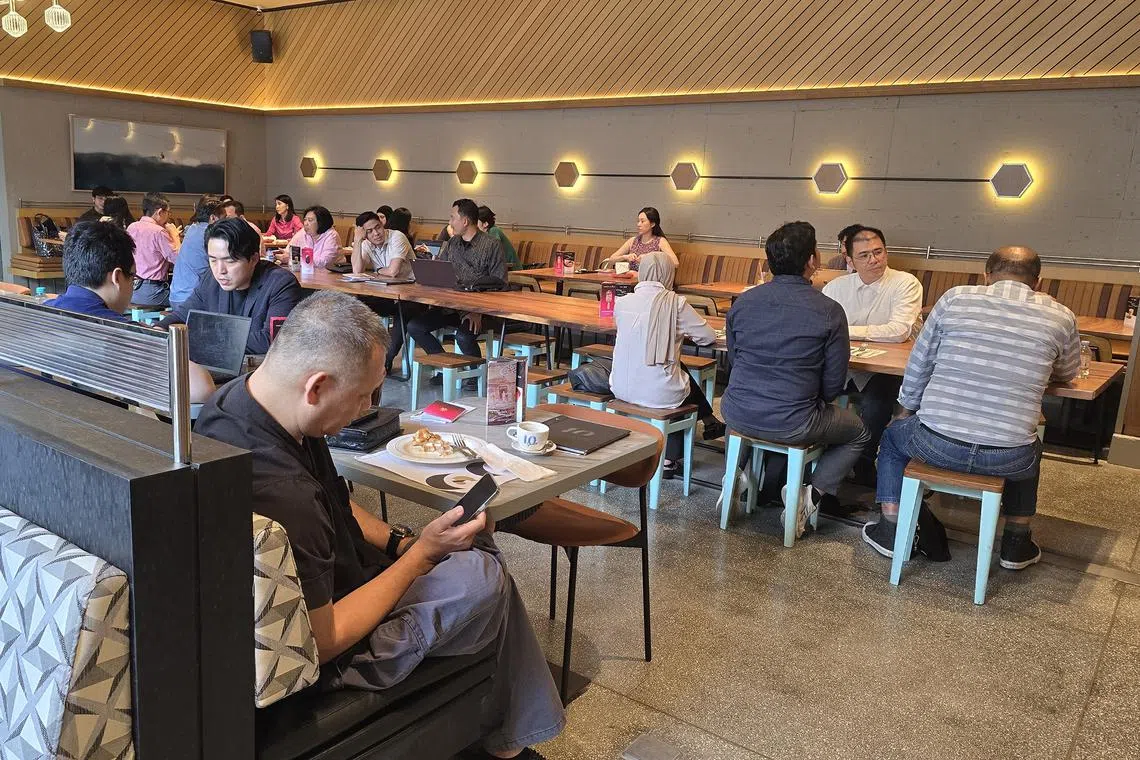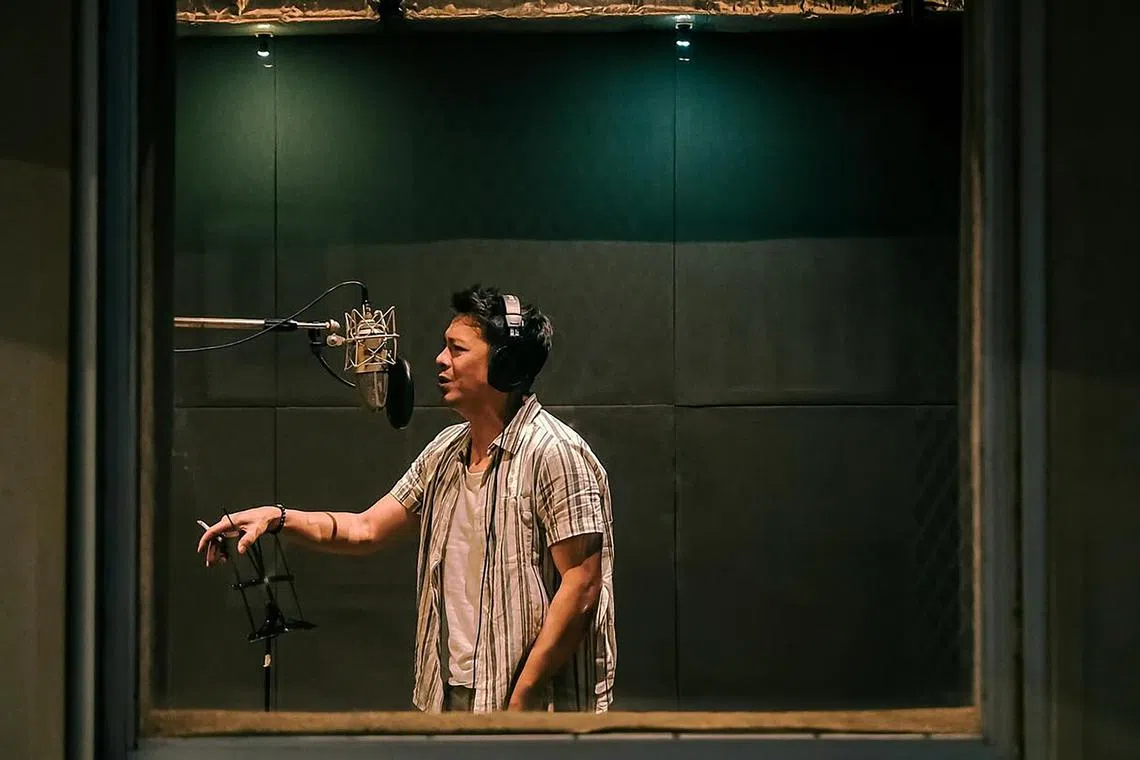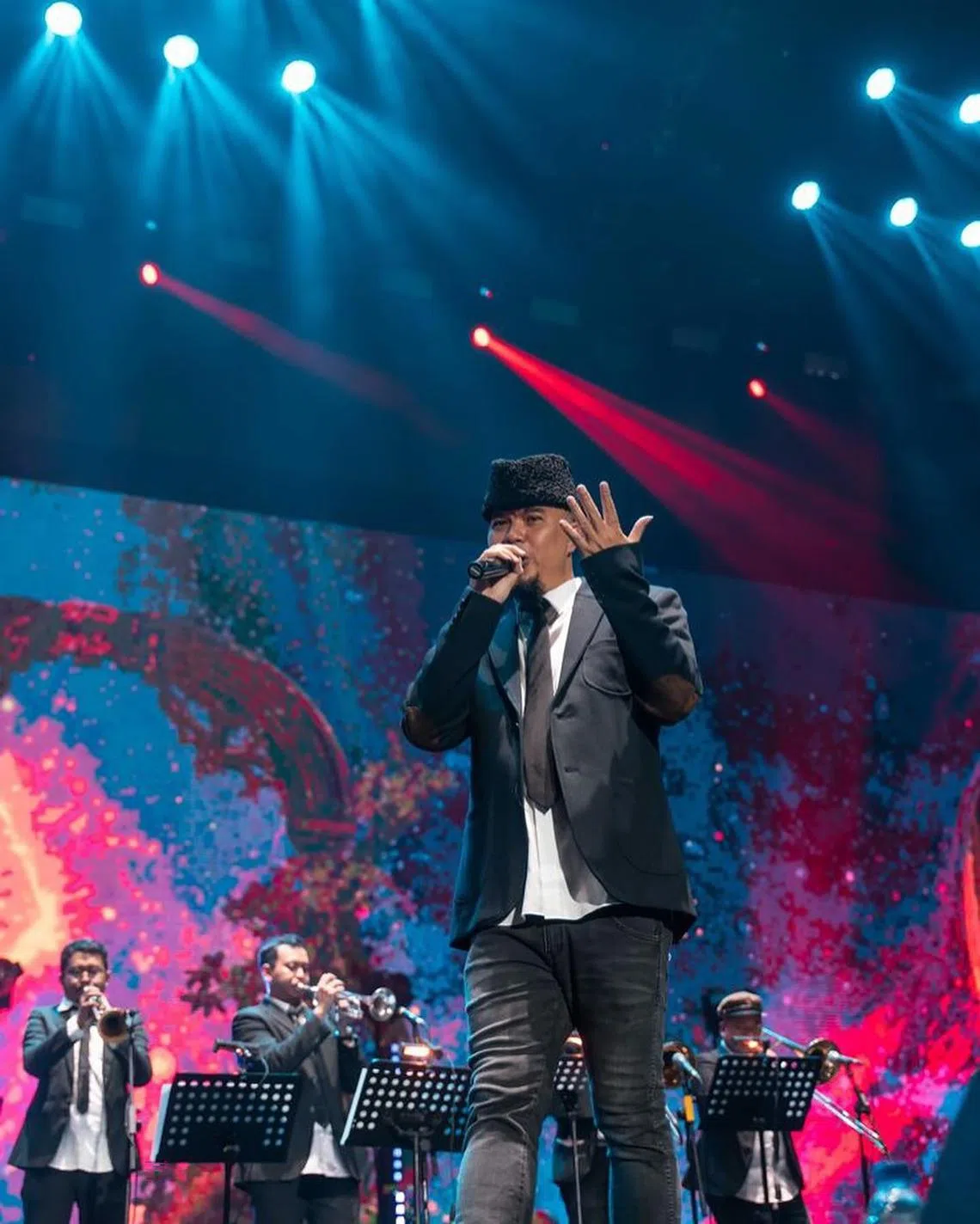Coffee without pop music: Cafes and more react to Indonesia’s clampdown over unpaid royalty fees
Sign up now: Get ST's newsletters delivered to your inbox

A recent crackdown on unpaid music royalties has spooked some cafes and restaurants in Indonesia into silence.
ST PHOTO: ARLINA ARSHAD
Follow topic:
- Indonesian cafes now play less local music due to royalty payment fears following enforcement of the 2014 Copyright Law.
- Cafes are switching to foreign songs or instrumental music after a popular noodle chain was reported for failing to pay royalties.
- Lawmakers plan to revise the 2014 Copyright Law to centralise royalty collection under LMKN and improve transparency within two months.
AI generated
JAKARTA – The hiss of espresso machines has replaced pop hits in Indonesia’s cafes and restaurants. Once alive with the sounds of local rock and indie pop, many venues now echo only with clinking cups and subdued chatter.
A recent crackdown on unpaid royalties has spooked business owners, divided musicians, and sparked viral panic among organisers of weddings and birthday parties. From courtrooms to WhatsApp chats, the dispute has shaken the industry – though lawmakers now say a resolution is close.
Under Indonesia’s 2014 Copyright Law, venues from concert halls to coffee shops must pay annual royalties to the state-backed National Collective Management Agency (LMKN) for the right to play music. Smaller collective bodies (LMK) then distribute the money to songwriters, singers and producers. For businesses, the royalty effectively doubles as the licence to use music.
Rates vary: cafes and restaurants are charged by seating capacity of 120,000 rupiah (S$9.50) per seat per year; bars and nightclubs are billed by floor area of 360,000 rupiah and 430,000 rupiah per sq m respectively.
Although the law was passed in 2014, enforcement only gained traction in 2021 when the government issued a regulation making royalty payments mandatory for all operators of commercial public spaces. This move aimed to comply with global standards, strengthen creators’ rights, boost the creative economy, and adapt enforcement mechanisms to the digital era. Many businesses initially shrugged off the rule, calling the system opaque and an unnecessary cost.
In 2025, oversight has become more stringent. In late July, the Ministry of Law and Human Rights reminded operators that royalties must be paid for all music played in public spaces, including those streamed through digital platforms such as Spotify, Apple Music and YouTube.
The issue came to a head with the case of popular noodle chain Mie Gacoan, whose franchise in Bali was reported in August 2024 for failing to pay royalties since 2022. On Aug 8, 2025, it made a 2.2 billion rupiah blanket payment settling dues for its 65 outlets across Bali, Java and Sumatra, covering the period from 2022 to 2025.
Since then, fear has gripped the industry.
Some cafes switched to English songs or instrumental covers, believing they drew less scrutiny – but these, too, are subject to royalties. Others resorted to nature sounds like bird calls and flowing water or Buddhist chants. The most cautious establishments went silent, as recordings of nature sounds – or their use when mixed into musical works – could fall under copyright.
A Straits Times check of half a dozen Jakarta cafes found many reluctant to talk about the issue. At one garden cafe once known for bird tracks, a staff member nervously pointed to a small speaker playing Spotify’s English playlist.
“We are legal, please go away,” she whispered.
Operators expressed their frustrations daily in private trade WhatsApp groups about rising costs, including having to pay royalties.
KopiKalyan, a popular Jakarta coffee chain, has swopped tracks by local indie bands such as Efek Rumah Kaca for foreign acts like Coldplay and The Cardigans.
“Our playlist had more pop, R&B, some jazz and alternative pop, including Indonesian artistes. But we have adjusted it and use songs from foreign musicians. The rules are still confusing. It is not clear what is correct,” Ms Amarsha Darnidita, its marketing head, told ST.
“Coffee shops always sell atmosphere. Without music, it feels lacking. That is why we try to maintain the cosy, lively vibe, so our customers still have a good experience,” she added.
Ms Amarsha said she believed using a business account on Spotify ensured artistes were properly compensated. Cafes also give exposure to emerging musicians who might otherwise remain unknown. She pointed to KopiKalyan’s experience playing the indie track Rintik Hujan by Ify Alyssa.
“She noticed and shared it on her Instagram story, saying she was very happy we played her song,” she added.
Some customers have already noticed the difference. Ms Ratna, 35, a regular at a cafe in South Jakarta, said the music suddenly shifted from familiar Indonesian hits to generic background tunes. “Before, the music lifted the mood. These days, it is just dull,” she said.
Wedding panic and musician’s drama
Even more confusion erupted in mid-August when Wahana Musik Indonesia, a non-profit that manages music copyright and represents more than 3,800 songwriters and publishers, suggested that music played at weddings and traditional celebrations could be subject to royalties. The announcement sparked panic among families and business owners over who should pay for music at wedding receptions, birthdays, and corporate events.
Professor Ahmad Ramli, one of the drafters of Indonesia’s 2014 Copyright Law, stepped in to calm fears. He clarified that events such as weddings and birthday parties are non-commercial and therefore exempt from royalties.
“My concern is when people think of songs as something frightening, as goods that they do not dare to touch. To the point that they do not even dare to sing at home,” he told the Constitutional Court on Aug 7.
Prof Ramli warned that overzealous enforcement could backfire. Music at social events promotes Indonesian songs and supports musicians. Silencing it, he said, would harm both the industry and artistes.
Even top musicians have clashed publicly over what they see as unfair royalty distribution. On one side is Mr Nazril Irham, better known as Ariel, the frontman of rock band Noah. Mr Nazril supports LMKN and LMK, the national system for collecting royalties.

Mr Nazril Irham, better known as Ariel, the frontman of rock band Noah, supports the national system for collecting royalties.
PHOTO: ARIEL NOAH/FACEBOOK
“If it goes through LMK, I do not mind. The problem is direct licensing. If you want to perform a song, do you have to ask the composer directly, or go through LMK? For me personally, it is a hassle if it has to be direct. Better through LMK,” he said in a local media’s YouTube channel in March.
On the other side is Mr Ahmad Dhani, the veteran musician behind rock band Dewa 19. In a press conference in the same month, he criticised Mr Nazril’s stance as “selfish” and “acting rich” for ignoring the livelihoods of other composers.

Mr Ahmad Dhani, the veteran musician behind rock band Dewa 19, believes musicians should handle the licensing directly.
PHOTO: AHMAD DHANI PRASETYO/FACEBOOK
He believes that musicians should handle licensing personally through direct agreements, which he said gives creators full control, guarantees fair compensation, and avoids unnecessary government or intermediary involvement.
In an Instagram post on Aug 6, Mr Ahmad also offered Dewa 19’s catalogue for free to cafes and restaurants that contacted him directly. He wrote: “(I), as the master owner, will give them for free to anyone interested. Those who are interested, DM.”
The dispute reflects a broader debate over music royalties in Indonesia. The split has left performers, venues, and event organisers confused about who must pay royalties and through which channel.
In March 2025, 29 prominent singers including Mr Nazril filed a judicial review at the Constitutional Court, challenging parts of the Copyright Law they say hinder fair compensation for creators and calling for a clearer, more transparent royalty system.
A clear path ahead
Meanwhile, cafes in the country are still worried. Without legal clarity, some fear that paying LMKN may not be enough if high-profile artists like Mr Ahmad demand direct approval, while unclear fees and double-payment risks leave operators anxious.
A frustrated restaurant operator said: “Everyone is saying different things. If LMKN is the only channel, we can at least budget once a year. But if we must get permission from every songwriter, perhaps we should just sing songs ourselves or record random sounds like fans whirring or my cats meowing.”
Mr Ronald Liong, co-director of the Tanamera coffee chain in Indonesia and Singapore said: “Musicians should be able to make a living from their work, I don’t think anyone would disagree on this.”
However, resolution now seems within reach. Deputy Speaker Sufmi Dasco Ahmad reassured the public and businesses that they can play or sing songs “as before” without fear of royalty claims, following a consultation with ministries, musicians, and House of Representatives leadership on Aug 21.
“To the wider public, it is hoped that everyone can remain calm, return to how things were, play songs without fear, and then sing without fear,” he said.
The meeting also agreed to focus on revising the 2014 Copyright Law over the next two months, and to centralise royalty collection under LMKN, with audits to improve transparency.
For cafegoer Ika Sari, 25, the silence has been unsettling. She rattled off a list of her favourite local artistes, from Hindia to Feast, and hopes local music can return to cafes.
“I used to complain when it was too loud, but now I miss it... Hearing other people’s chatter and laughter is even more irritating.”


